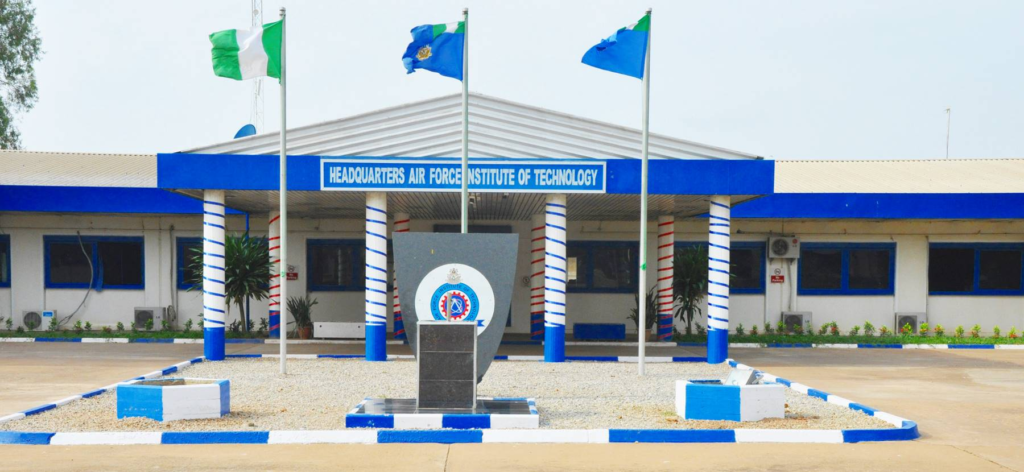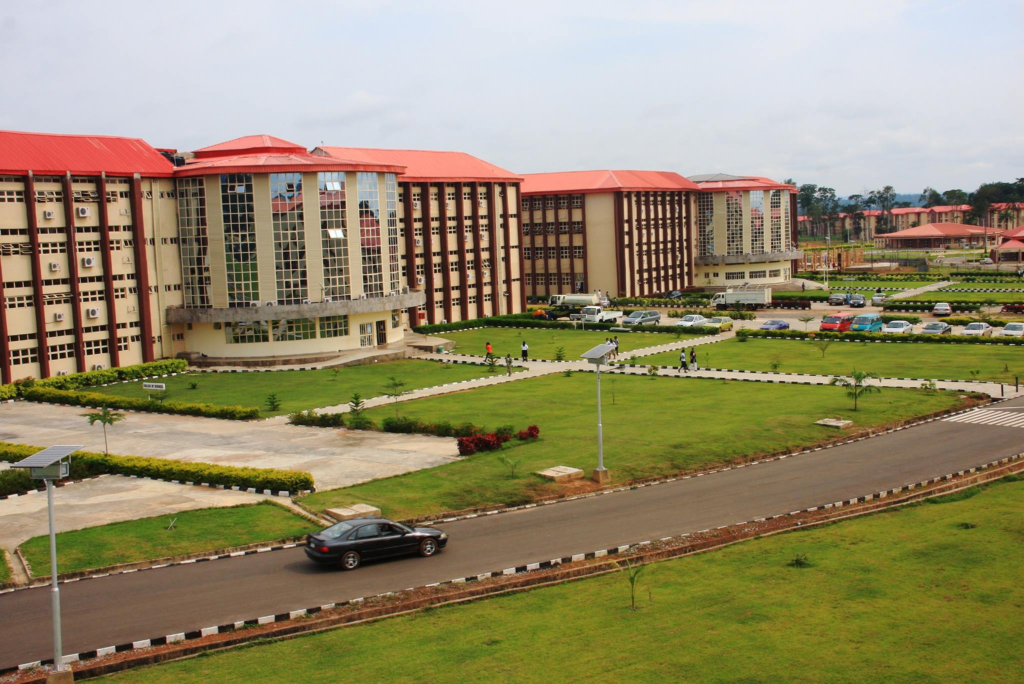Many Nigerian students dream of becoming an aeronautical engineer, Yet, pinpointing universities that offer dedicated Aeronautical Engineering programs can be a challenge. Many students already assume there’s no university in Nigeria that offer aeronautical engineering as a course. Well, I am pleased to let you know that while some institutions provide related courses, only a select few in Nigeria offer comprehensive degrees in this specialized field.
Through extensive research, we’ve identified five aeronautical universities in in Nigeria; these universities offer this course as a sole degree course and stand out in delivering quality aeronautical engineering education. Let’s explore these institutions and what they offer to aspiring aerospace engineers.
READ ALSO: 15 Places to Learn How to Code in Nigeria
Top 5 Aeronautical Engineering Universities in Nigeria
1. Nigerian College of Aviation Technology (NCAT), Zaria
The Nigerian College of Aviation Technology (NCAT), located in Zaria, Kaduna State, is Nigeria’s premier aviation training institution as well as one of the few aeronautical engineering universities in Nigeria. It was established in 1964 and has since then been instrumental in training aviation professionals, including pilots, aircraft maintenance engineers, air traffic controllers, and aeronautical telecommunication engineers.

The Institution which was Initially known as the Nigerian Civil Aviation Training Centre, NCAT commenced operations in 1966 with support from the United Nations Development Programme and the International Civil Aviation Organization. The institution was established to serve both Nigerian and African aviation training needs, offering specialized courses in various aviation disciplines.
NCAT has a diverse fleet of training aircraft, including single-engine TAMPICO TB9s, TRINIDAD TB20s, twin-engine Beech 58s, BELL 206 helicopters, and a B737 aircraft for cabin crew training. As of 2010, the college had graduated approximately 6,500 students which underscores its pivotal role in aviation training.
Admission Requirements
While specific admission requirements vary based on the chosen program, prospective students typically need to have completed secondary education with credits in relevant subjects such as English, Mathematics, Physics, and Geography. Given the specialized nature of aviation courses, additional criteria like medical fitness and aptitude tests may also be required.
Nigerian College of Aviation Technology (NCAT), Zaria is situated approximately 7 kilometers north of Zaria city, and shares its grounds with Zaria Airport. This proximity provides students with practical training opportunities in a real-world aviation environment.
READ ALSO: IoTeX’s Innovative Approach to IoT Privacy and Security
2. Air Force Institute of technology (AFIT)
The Air Force Institute of Technology (AFIT), situated within the Nigerian Air Force Base in Kaduna, stands as a premier institution dedicated to advancing aerospace and aviation education in Nigeria. It was established in 1977 and has evolved from its initial role as a technical training school to a full-fledged university, offering a range of undergraduate and postgraduate programs in aerospace engineering and related fields.

AFIT’s inception was driven by the Nigerian Air Force’s need to develop indigenous technical expertise, especially following the Nigerian civil war. Initially known as the NAF Technical and Supply School (TSS), the institution underwent several transformations, reflecting its expanding mandate and the growing complexity of aerospace technologies. In 2008, it was aptly renamed the Air Force Institute of Technology, symbolizing its broader educational and research objectives.
AFIT offers a comprehensive suite of programs tailored to meet the demands of the aerospace and aviation sectors:
- Undergraduate Degrees: These include Bachelor of Engineering (B.Eng.) degrees in Aerospace Engineering, Mechanical Engineering, Electrical and Electronics Engineering, Automotive Engineering, Civil Engineering, and Information & Communication Technology.
- Postgraduate Degrees: AFIT offers Master of Science (M.Sc.) programs in Aerospace Vehicle Design and Thermal Power, as well as Postgraduate Diplomas (PGD) in Aerospace Engineering, Electrical and Electronics Engineering, Construction Technology, and Logistics and Supply Chain Management.
Admission Requirements
Prospective students aiming to enroll in AFIT’s aerospace engineering programs must satisfy AFIT specific academic criteria such as obtaining five credit passes in O’level subjects including English Language, Mathematics, Physics, Chemistry, and one other relevant science subject. Applicants are required to select AFIT as their first-choice institution when registering for the UTME. The examination subjects should include English Language, Mathematics, Physics, and Chemistry.
Candidates with advanced qualifications, such as the Interim Joint Matriculation Board (IJMB) with at least 13 points (including a minimum of ‘B’ grades in Mathematics and Physics), or a National Diploma (ND) with an Upper Credit in Aircraft Engineering Technology or related fields, may be considered for direct entry into the 200-level of the program.
Eligible candidates will be invited for a screening exercise, which may include written tests and interviews to assess their suitability for the chosen program.
3. Kwara State University (KWASU), Malete, Kwara State
Kwara State University (KWASU), located in Malete, Kwara State, stands out as Nigeria’s first institution to offer a Bachelor of Engineering degree in Aeronautical and Astronautical Engineering. This pioneering program, approved by the National Universities Commission (NUC) in 2017, underscores KWASU’s commitment to advancing engineering education in the country.
The university’s Faculty of Engineering and Technology has carved a niche by offering programs relevant to community development at both undergraduate and postgraduate levels.

Admission into KWASU’s Aeronautical and Astronautical Engineering program requires prospective students to meet specific criteria. Applicants must have a minimum of five credit passes in O’Level examinations, including Mathematics, English Language, Physics, Chemistry, and one other relevant subject. These credits should be obtained in no more than two sittings.
Additionally, candidates are expected to have a satisfactory score in the Unified Tertiary Matriculation Examination (UTME), with KWASU specifying minimum scores for various programs. It’s also essential for applicants to participate in the university’s post-UTME screening exercise.
KWASU’s dedication to practical skills and research opportunities is evident through its modern facilities and collaborations with industry experts. The university’s serene learning environment fosters academic excellence, making it a notable choice for students pursuing careers in aeronautical engineering.
By integrating theoretical knowledge with hands-on experience, KWASU equips its students to meet the evolving demands of the aerospace industry.
READ ALSO: 19 online universities in Nigeria to get a degree (Distance Learning)
4. Afe Babalola University, Ado-Ekiti (ABUAD)
Afe Babalola University, Ado-Ekiti (ABUAD), established in 2009, has rapidly positioned itself as one of the top aeronautical engineering universities in Nigeria. Among its different academic offerings, the Bachelor of Engineering in Aeronautical and Astronautical Engineering stands out and reflects the university’s commitment to advancing engineering education in the country.

ABUAD’s College of Engineering, inaugurated on January 4, 2010, is one of the university’s pioneer colleges. The college has garnered recognition for its modern facilities and innovative approach to engineering education. The Aeronautical and Astronautical Engineering program is meticulously designed to equip students with the knowledge and skills necessary for the aerospace industry. The curriculum encompasses a comprehensive range of subjects, including:
- Aerodynamics
- Aircraft Structures
- Propulsion Systems
- Avionics
- Spacecraft Design
These courses ensure that graduates are well-prepared to tackle the challenges of the rapidly evolving aerospace sector.
Admission Requirements
Prospective students aiming to enroll in the Aeronautical and Astronautical Engineering program must meet the following criteria:
- Obtain a minimum of five (5) O’Level credits in subjects including English Language, Mathematics, Physics, Chemistry, and one other relevant subject, achieved in no more than two sittings.
- Achieve a satisfactory score in the UTME, with subject combinations typically comprising English Language, Mathematics, Physics, and Chemistry.
Direct Entry applicants must possess Advanced Level (A-Level) qualifications or equivalent in at least two relevant subjects. Holders of National Diploma (ND), National Certificate of Education (NCE), Higher National Diploma (HND), Bachelor’s degrees, or equivalent qualifications in related disciplines may be considered for direct entry into the program.
Applicants are to consult the university’s official admissions portal or contact the admissions office for other detailed information regarding entry requirements.
ABUAD’s College of Engineering is renowned for its modern infrastructure and conducive learning environment. The college boasts 37 well-equipped laboratories, providing students with hands-on experience and practical skills for professional development. This commitment to experiential learning ensures that students are not only theoretically proficient but also practically adept, aligning with industry standards and expectations.
The College of Engineering at ABUAD has earned accolades for its innovative approach to engineering education. Notably, the college has been acknowledged as the “Template for Engineering Education in Nigeria.” Its students and faculty have also participated in international competitions; For instance, the college achieved commendable recognition in invention competitions held in Seattle, USA, in 2015 and in London, England, in 2016.
READ ALSO: Top 13 tech companies in South Africa
5. Lagos State University (LASU), Lagos
Lagos State University (LASU), located in Ojo, Lagos State, is a prominent university in Nigeria offering Aeronautic and Astronautic Engineering program, designed to equip students with the knowledge and skills necessary for careers in the aerospace industry.

The Aeronautic and Astronautic Engineering program at LASU focuses on the design, development, and maintenance of aircraft and spacecraft. Students gain a solid foundation in engineering principles, aerodynamics, propulsion systems, and materials science. The curriculum is designed to meet international standards, and prepare graduates for both local and global opportunities in the aerospace sector.
Admission Requirements
To be eligible for admission into the Aeronautic and Astronautic Engineering program at LASU, prospective students must have five (5) credit passes in Senior Secondary Certificate Examinations (SSCE) or its equivalent. The required subjects include Mathematics, Physics, Chemistry, English Language, and one other science subject.
Applicants are required to sit for the UTME, selecting Mathematics, Physics, and Chemistry as their examination subjects. A competitive score in the UTME is essential for consideration.
For candidates seeking direct entry into the program, A-Level passes in any two (2) of Mathematics, Physics, and Chemistry are required. Alternatively, candidates with National Diploma (ND) or Higher National Diploma (HND) in relevant engineering fields may be considered, provided they meet LASU’s specific criteria.
The Aeronautic and Astronautic Engineering program at LASU spans five years for UTME entrants and four years for direct entry students. The curriculum is structured to provide a blend of theoretical knowledge and practical experience, including laboratory work, workshops, and industrial training.
READ ALSO: Top 20 Engineering Universities in Japan
Career Prospects for Aeronautical Engineering Graduates
Graduates of the Aeronautical and Astronautical Engineering program are well-positioned to pursue different career paths within the aerospace industry and related sectors. Potential career opportunities include:
- Aircraft Design and Manufacturing: This involves the conceptualization and production of aircraft components and systems.
- Maintenance Engineering: Ensuring the operational safety and efficiency of aircraft through regular inspections and maintenance.
- Avionics Engineering: Specializing in the electronic systems used in aviation, including navigation, communication, and instrumentation.
- Research and Development: Contributing to advancements in aerospace technology through innovative research initiatives.
- Regulatory Agencies: Working with governmental bodies to develop and enforce aviation safety and operational standards.
Conclusion
Embarking on a career in aeronautical engineering within Nigeria is both ambitious and rewarding. With the above listed universities, you can kickstart your career in this field of study; each of the above mentioned universities stand at the forefront of aeronautical education in the country. Each offers unique strengths and specialized programs designed to equip students with the skills and knowledge necessary to excel in the dynamic field of aerospace engineering.
Do you know about any other aeronautical universitiy in Nigeria, let me know about it in the comments box below; Don’t forget to share with your friends who wish to study aeronautical engineering.
You can also discuss with our education consultant: Uche: Education Consultant









